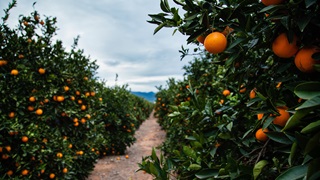
Publication
Canadian Food Inspection Agency efforts to streamline food supply chain
As Canadians continue to self-isolate and eat more meals at home, demands on Canada’s grocery stores and food manufacturers have dramatically increased.


Global | Publication | October 2020
The whole of the global food and agribusiness value chain is under more pressure than ever before due to increased attention on the environmental and resource impacts of supply chains and demand for sustainable production. This is leading to changes in supply chains at an unprecedented speed. Agribusiness supply chains are complex and multi-faceted, including various components related to supply, production, post-harvest, processing, distribution and includes linkages in-between – truly “farm-to-fork”.
To feed the ever-growing global population, which is estimated to be nine billion people by 2050, in a sustainable and resource efficient manner will require new and better ways to supply the world’s food. Global food supply chains will need to adapt.
Our food law team explores the latest trends and developments in food supply chains. The articles in this section cover a wide range of food products and supply chain processes and steps, exploring technology shifts and emerging best practices.

Publication
As Canadians continue to self-isolate and eat more meals at home, demands on Canada’s grocery stores and food manufacturers have dramatically increased.

Publication
Prime Minister Trudeau recently announced new measures to assist agribusinesses, $252 million in federal funding and an increase of $200 million in borrowing capacity to support agribusinesses.

Publication
Canadian producers of a wide range of agriculture products have been preparing for, and in some cases, bracing for change when the Canada-United States-Mexico Agreement (CUSMA) comes into effect on July 1st of this year.

Publication
In mid-March 2025, Cognia Law and Norton Rose Fulbright’s Legal Operations Consulting team co-hosted a second roundtable event that brought together senior leaders, including GCs, COO and head of legal operations, from across the legal industry to discuss how to drive meaningful change within the legal ecosystem.
Subscribe and stay up to date with the latest legal news, information and events . . .
© Norton Rose Fulbright LLP 2025